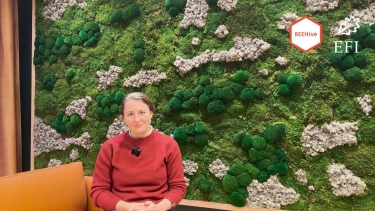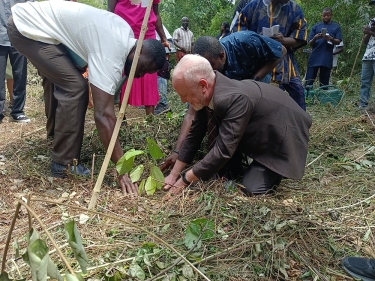Using science to improve policy
Using science-based knowledge to improve the implementation of Natura 2000 in forests was the focus of a ThinkForest seminar which took place in Brussels on 27 September.
There was general consensus amongst the speakers and audience that the Natura 2000 network was globally recognised as a unique nature conservation tool. However, experiences from the last 25 years have shown that its implementation could be better. Marku Lamp, Deputy Secretary General, Ministry of the Environment, Estonia said: “We have come a long way in building our protected forest network. We need to start to look beyond 2020, and we need to make use of our science community to give us solutions.”
Metodi Sotirov from the University of Freiburg presented some of those science-based solutions from the new EFI What Science Can Tell Us study on the implementation of Natura 2000 in forests. The study team of 20 scientists identified three major recommendations to move forward with Natura 2000 implementation:
- decision makers and practitioners need to join forces to deal with ideological and information challenges – there should be two-way communication;
- there is a need to tackle economic and funding challenges – there should be joint ownership and responsibility across all levels;
- we need to tackle institutional challenges in Natura 2000 implementation – there are still many examples of lack of policy coordination.
A wide-ranging panel discussion delved in more detail into the practicalities of better implementation. Key issues discussed included evidence-based funding, an integrated monitoring structure, and the clear need to involve all stakeholders and invest in win-win dialogue.
Better communication was needed to build social acceptance and trust, especially among landowners. “A strong nature and a strong economy are not mutually exclusive”, said MEP Mark Demesmaeker. One in six jobs in the EU depends on nature, and the costs of managing Natura 2000 are far lower than the benefits it generates.
Flexibility in implementation is also important. Jürgen Bauhus from the University of Freiburg reminded the audience that the goal was “multi-functional, functioning forests, in the face of climate change.”
The ThinkForest seminar, ‘Implementing Natura 2000 in forests: Lessons learned and looking ahead’ was held at the International Press Centre in Brussels on 27 September.
What Science Can Tell Us 7: Natura 2000 and forests: Assessing the state of implementation and effectiveness was published by the European Forest Institute on 21 September. Download the full study or the executive summary.
Further information: Lauri Hetemäki, Assistant Director, European Forest Institute, e-mail: lauri.hetemaki @ efi.int or phone: +358 (0)10 773 4316
New research
EFI together with its Associate Members is tackling the issue of Natura 2000 and forests, integrated forest management and policies to support the provision of forest ecosystem services in new European research projects under its Resilience Programme. Further information: Georg Winkel, Head of Resilience Programme (georg.winkel @ efi.int)
Photo: Michael Chia


